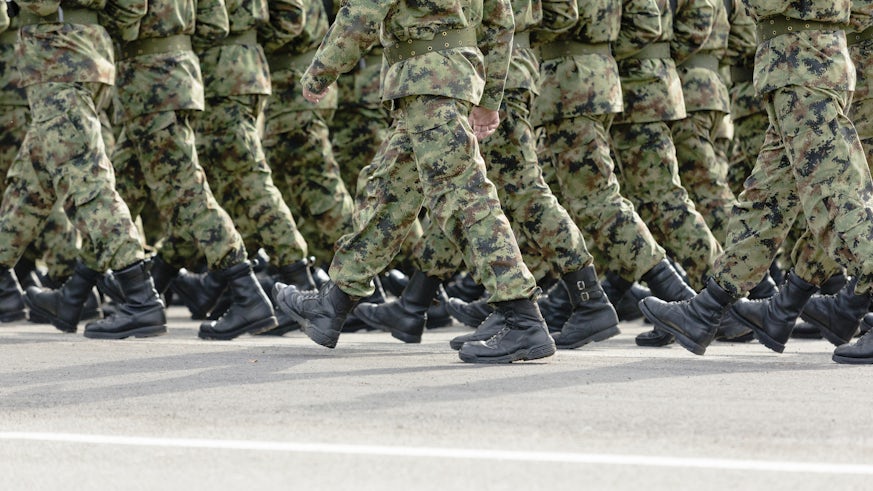Sustaining future army reserves
7 July 2016

Improvements to the way that Army Reserve Forces are trained and supported are needed if recruitment and retention targets are to be met, according to the results of a preliminary study by Cardiff and Exeter universities.
Dr Sergio Catignani Senior Lecturer in Security and Strategic Studies at the University of Exeter’s Strategy and Security Institute and Dr Victoria Basham, Senior Lecturer in International Relations at Cardiff’s School of Law and Politics say that more needs to be done if reservists are to be used effectively to fulfil the nation’s defence objectives.
Their research examined the factors that shape and influence the commitment of volunteer reservists to serving in the British Army Volunteer Reserves, paying particular attention to the influence of family life and the pressures of civilian employment.
Although progress has been made in implementing the Army’s Future Reserves 2020 reform programme, their study – Sustaining Future Reserves 2020: Assessing Organisational Commitment in the Reserves – finds that if all reservists are to feel valued and valuable further changes are still necessary. The families of reservists should also be better supported as they play an increasingly important supporting role within the Army.
As part of the research, Dr Catignani and Dr Basham interviewed regiment commanding officers and reserve soldiers.
The commanding officers highlighted a number of difficulties including: fulfilling the increasing number of training commitments, defence engagement and community outreach tasks they are expected to carry out without this affecting morale and operational readiness; and an over-emphasis on recruitment efforts which has affected staff retention.
Reserve soldiers who took part in the study said the increased training - altered so it was less repetitive and boring - still does not live up to the expectations of many recruits. One reservist said: “it probably doesn't always live up to the excitement that you see on the Army Reserve television advertisements when there's tanks and all sorts rolling along ... probably the reality of that, a lot of the time, is that you’re in classrooms going through PowerPoint presentations on law of armed conflict or doing chest compressions and first aid type stuff.”
Dr Catignani said: “The missing and key variable in sustaining the reserves to 2020 and beyond is the family. It is becoming increasingly difficult for reservists to separate their role from their other major life commitments, because they are now expected to remain often in contact with the Army at times when they are not serving. Members of their family have told us this ‘constant’ contact has had a significant impact on the family life of those interviewed. We appreciate that much work has been carried out by the Army to keep employers on-side, but greater efforts need to be directed towards supporting reservists’ families, particularly outside of deployment.”
Dr Basham said: “It is clear from our interviews that reservists depend on family members, particularly female partners, to ‘pick up the slack’. Most of these women, and in some cases men, willingly do so because they understand how important reserve service is to their partners. Reserve service can still be hard on couples and families though not least, because it so often infringes on the time they get to spend together.”
The researchers presented their interim results to MPs on the All-Party Parliamentary Group for Reserve Forces and Cadetson on 5 July, 2016.
Their interim report, due to be published later this year, will recommend that expectations of reservists and reserve units need to be better grounded in the reality that reservists can only serve during their “spare time”, unless mobilised.
It will also recommend that further attention needs to be paid to the scheduling and quantity of training on offer in order to take into better account the challenges reservists have in balancing their work, family, personal and reserve commitments.
The project is part of the Future Reserves Research Programme and co- funded by the Economic and Social Research Council and the Ministry of Defence.